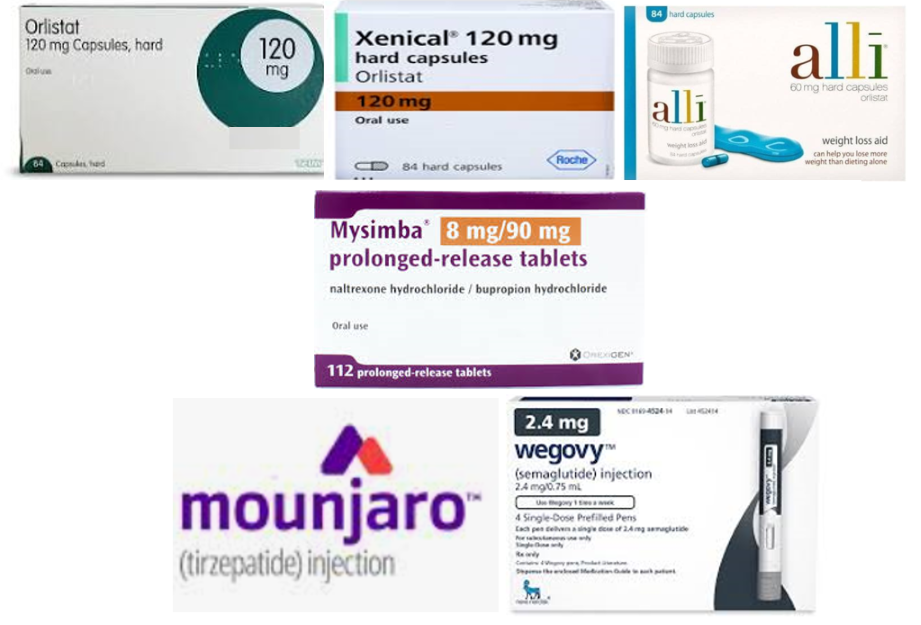Treatment and management options
Pharmacological treatment options are available to customers with a BMI equal to or greater than 30kg/m2 (27kg/m2 if weight-related co-morbidities e.g.,Type 2 Diabetes).
Historically many pharmacologicals have been prescribed off licence e.g., Rybelsus / Ozempic (Semaglutide)
Where the customer has already made changes to their diet and lifestyle and has been unsuccessful in losing weight as of February 2024, there are now 5 licensed treatment options currently being provided through community pharmacy including:
- Xenical / Alli (Orlistat).
- Mysimba (Naltrexone / Bupropion).
- Wegovy (Semaglutide).
- Mounjaro (Tirzepatide).
- Saxenda (Liraglutide).
N.B. These medical interventions are only licensed where the customer has made changes to their diet and lifestyle to support their weight loss journey
It is important for health providers to use BMI in conjunction with a clinical and behavioural assessment, in order to determine the most appropriate treatment option and if the need for referral is necessary.
Other factors to consider include:

Waist circumference
- Carrying too much fat around the middle is associated with an increased risk of developing heart disease and diabetes. Currently NICE recommends that waist circumference is used together with BMI to assess the health risks.
- Generally, men with a waist size of 94cm or more and women with a waist size of 80cm or more are more likely to develop obesity-related health problems.
Ethnicity
A person's ethnic group can also affect their risk of some health conditions. For example, adults of Asian origin may have a higher risk of health problems at BMI levels above 25.
The next five screens will explore the five forms of medical intervention available in pharmacy.

